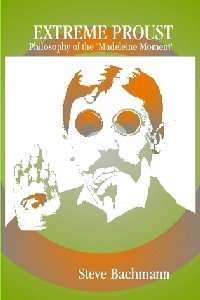5-17-2010--British troops who have fought in Iraq or Afghanistan suffer far lower rates of post-traumatic stress than Americans do, according to the most rigorous psychiatric study of Britain’s military so far. While estimated rates of the condition in troops returning to the United States range from 10 to 15 percent, the new study found a rate of just 4 percent among Britons — even though they and the Americans have seen equal amounts of combat in recent years. ... Another big difference between the two countries is national health care. In Britain, returning soldiers are covered free for life; in the United States, they are entitled to five years of free care from the Department of Veterans Affairs, though service-related injuries are covered for life. “I’ve brought this up with American military commanders; why not switch to nationalized health care?” Dr. Wessely said. “Went over like a cup of cold spit.” –NYT A10 [no faggoty socialism for OUR troops...]
--Right-wing extremism may be the same as it ever was, but it clearly has more adherents now than it did a couple of years ago. Why? It may have a lot to do with a troubled economy. True, that’s not how it was supposed to work. When the economy plunged into crisis, many observers — myself included — expected a political shift to the left. After all, the crisis made nonsense of the right’s markets-know-best, regulation-is-always-bad dogma. In retrospect, however, this was naïve: voters tend to react with their guts, not in response to analytical arguments — and in bad times, the gut reaction of many voters is to move right. That’s the message of a recent paper by the economists Markus Brückner and Hans Peter Grüner, who find a striking correlation between economic performance and political extremism in advanced nations: in both America and Europe, periods of low economic growth tend to be associated with a rising vote for right-wing and nationalist political parties. The rise of the Tea Party, in other words, was exactly what we should have expected in the wake of the economic crisis. –Krugman [d’oh...]
-That spring was supposed to bring a flowery conclusion to their [B.U., class of 1970] four years of academe. But President Richard M. Nixon had invaded Cambodia. National Guardsmen had gunned down students at Kent State, killing four and wounding nine. Young men still faced the draft. And this campus, like many across the country, was in turmoil, with strikes, sit-ins, building takeovers and fire-bombings. The situation became so incendiary that, for safety’s sake, university officials called off final exams, canceled graduation and sent students packing. This weekend, on what would have been the 40th anniversary of that ceremony, the university sought to make amends with a proper graduation. ... “This is not an apology,” Robert A. Brown, the president of the university, said in an interview beforehand. “We did exactly the right thing by calling off exams. It’s an opportunity to reach out to this cadre of alums and say, ‘Come, be with us.’ ” ... The ice-breaking social event was an extensive slide show of photographs taken by Peter Simon, a member of the class and brother of Carly Simon. “Forty years ago I probably never would have gone to graduation because I was such a hippie,” Mr. Simon said to chuc kles and applause. But now, he said, “time has mellowed me.” Mr. Simon said that when he speaks about his photography around the country, students frequently say to him, “God, I wish I’d been alive and been part of your generation because it’s really boring now.” He said he responds by saying: “But you have all this texting! You have cellphones!” “And they say they’d give all that stuff away for the kind of experiences we had,” he said. “And I have to say, I agree.” --NYT A16 [NEVER let it be...]
Subscribe to:
Post Comments (Atom)




No comments:
Post a Comment